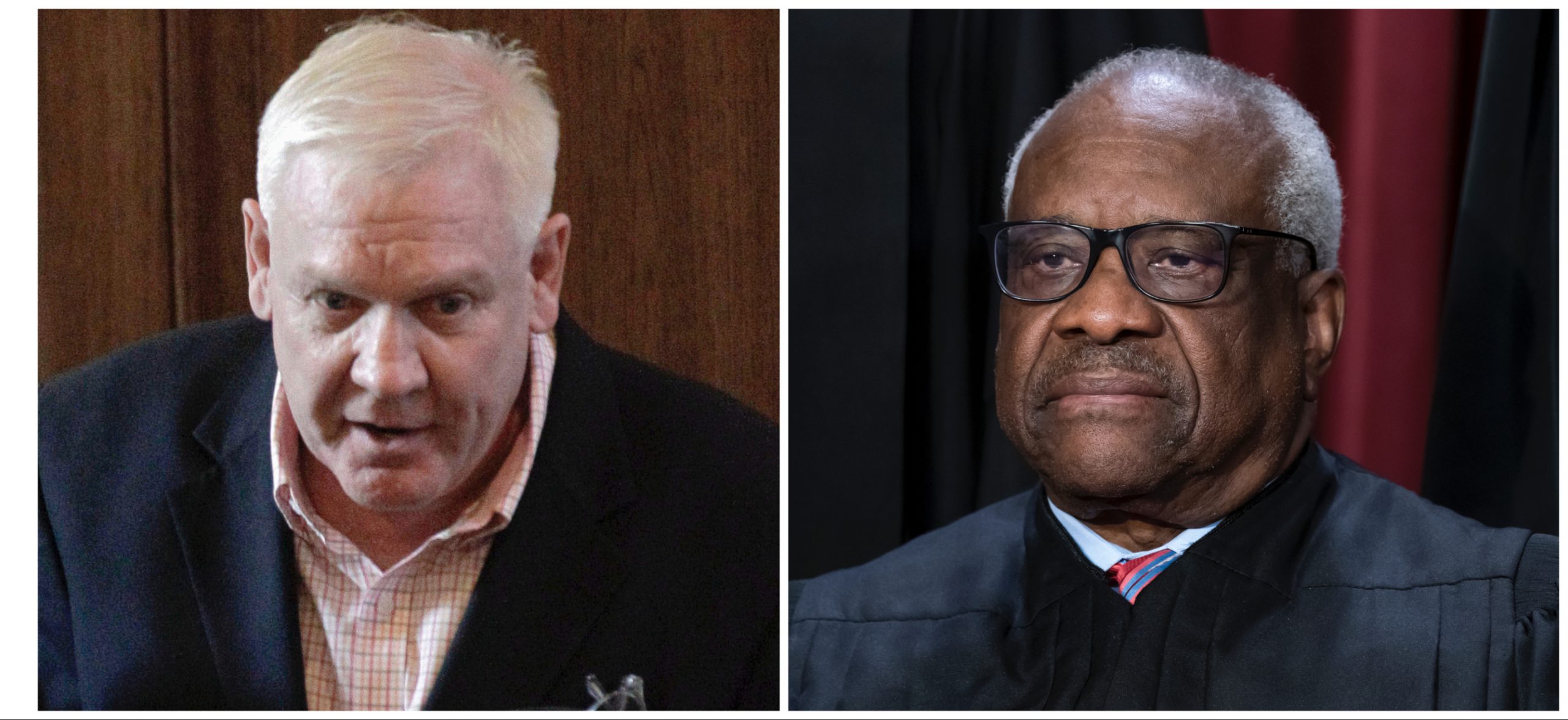Supreme Court Justice Clarence Thomas failed to release his financial disclosure forms on Wednesday after the majority of his colleagues did so.
The deadline to release the reports was Wednesday at 1 p.m., but justices may request an extension, which is what Thomas and Justice Samuel Alito did, according to the Administrative Office of the United States Courts.
GAS PRICES TODAY: WHERE TO FIND THE CHEAPEST FUEL ACROSS THE COUNTRY
Citing the “Ethics in Government Act, extensions of up to 90 days may be granted to those filing financial disclosure reports,” Charles Hall, a public affairs specialist with the administrative office, told the Washington Examiner.
Hall added that “reasonable” time extensions for filing any reports may be granted under procedures prescribed by the supervising ethics office for each branch.

Thomas’s failure to meet the deadline comes amid recent criticism from some Democrats and judicial ethics advocates over his relationship with Republican megadonor Harlan Crow, specifically regarding trips and private real estate dealings between the pair.
The move by Thomas and Alito means that any information about Thomas’s relationship with Crow may not be released until after the end of the present Supreme Court term, when major rulings are slated to come down pertaining to religious liberty, affirmative action, and student loans, among other matters.
After weeks of intrigue by Democrats on the Senate Judiciary Committee, a lawyer for Crow agreed this week to meet with the committee to discuss Crow’s past interactions with the justice.
Meanwhile, seven of the justices met the deadline for submitting their disclosures. The reports included typical information such as outside income from justices earned by writing books or teaching jobs at law schools, as well as some pricey gifts they occasionally receive.
University of Richmond law professor Carl Tobias told the Washington Examiner the pair of justices’ requests for extensions might be due in part to the high court’s “busy” term.
Compared to the busy nature of last year’s term, “this one is the same, maybe more intense,” Tobias said.
“But my sense is that [extensions are] pretty freely granted, and that happens,” Tobias said, adding that perhaps it marks a “good sign” that Thomas is spending more time on his disclosure forms.
Thomas, the eldest and most conservative justice on the Supreme Court, became the subject of scrutiny by Democratic lawmakers after a series of ProPublica reports exposed his relationship with Crow.
CLICK HERE TO READ MORE FROM THE WASHINGTON EXAMINER
In a rare response from Thomas, he said in April that he was “advised” that he need not disclose trips Crow paid for him and his wife, Ginni Thomas, in years past.
Thomas noted the guidelines for disclosures “recently changed” at the time and said it was his “intent to follow this guidance in the future.” CNN also reported in April that Thomas planned to amend the disclosure.
